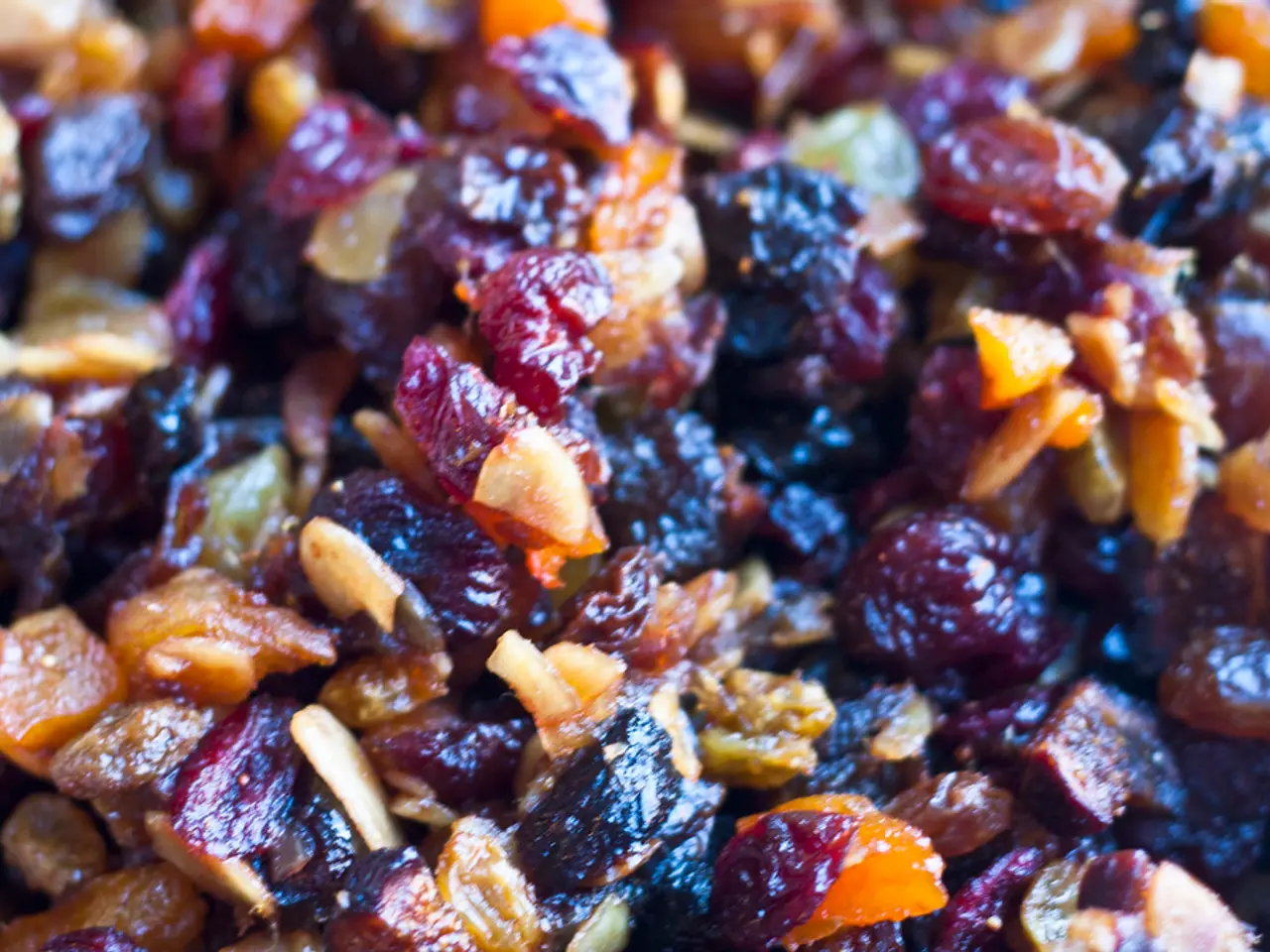Sodium Consumption: Could it lead to bloating and weight gain?
High Sodium Intake: A Silent Culprit for Health Concerns and Weight Gain
Excessive sodium consumption, more often than not, comes from packaged, processed, or restaurant foods, rather than the salt shaker [1]. A high sodium diet has been linked to a variety of health issues, including heart disease, stroke, and kidney disease, among others [2].
A 2014 Spanish study found a correlation between elevated urinary sodium levels and high body weight, body mass index, waist circumference, and waist-height ratio [3]. Moreover, research suggests that a high sodium diet may increase the likelihood of bloating, with one study indicating a 27% higher chance compared to low-sodium diets [4].
The retained water from excessive sodium intake, often referred to as water weight, can cause temporary bloating and weight gain [2][4][5]. This happens when the body retains water to dilute the high salt levels, leading to swelling or bloating. People with salt sensitivity or underlying conditions like insulin resistance or impaired kidney function may experience these effects more noticeably [1][2].
High blood pressure, a risk factor for heart attacks and strokes, is one of the primary concerns associated with high sodium intake. Consuming high levels of sodium can draw more water into the blood vessels, raising a person's blood pressure [6]. Over time, high blood pressure can stress the walls of the blood vessels, leading to an accumulation of plaque that can block blood flow [7].
The average sodium intake of individuals in the United States is 3,400 mg per day, exceeding the recommended limits set by the Centers for Disease Control and Prevention (CDC) [8]. The CDC recommends eating less than 2,300 milligrams of sodium per day, and an ideal limit of 1,500 mg for most adults [8].
Reducing sodium intake and making small changes to dietary habits can help improve health and reduce the risk of health complications. Choosing "no salt added" and "low sodium" canned foods, reading food labels, and comparing products can help during grocery shopping [9]. Cooking at home is almost always lower in sodium and price, with tips including reducing salt, adding more fruits and vegetables, and avoiding sauces and packaged mixes [10].
Restaurant food often contains more sodium than home-cooked food, but dining out tips include asking for nutritional information, asking for less salt, and avoiding using the salt shaker [11]. Additionally, maintaining balanced electrolyte levels, staying well hydrated, and increasing potassium-rich foods can help reduce bloating and water weight [2][4][5].
While sodium is essential for many of the body's natural processes, consuming high levels can have detrimental effects on health. By making conscious dietary choices and reducing sodium intake, individuals can significantly lower their risk of health complications and maintain a healthier lifestyle.
References: 1. Mayo Clinic 2. American Heart Association 3. European Journal of Nutrition 4. American Journal of Clinical Nutrition 5. Journal of the American College of Nutrition 6. American Journal of Physiology-Renal Physiology 7. American Journal of Hypertension 8. Centers for Disease Control and Prevention 9. Food and Drug Administration 10. Harvard T.H. Chan School of Public Health 11. Food and Nutrition Information Center
- High sodium intake from food and food benefits, particularly packaged, processed, or restaurant foods, has been linked to a higher risk of health concerns, weight gain, and chronic diseases like heart disease, stroke, kidney disease, and obesity.
- A 2014 Spanish study unveiled a correlation between elevated urinary sodium levels and various indicators of obesity, such as high body weight, body mass index, waist circumference, and waist-height ratio.
- Research in the field of health and wellness suggests that a high sodium diet may increase the likelihood of weight gain and bloating, with one study indicating a 27% higher chance compared to low-sodium diets.
- High sodium intake can lead to weight gain due to the retained water from excessive sodium, often referred to as water weight, which causes temporary bloating and swelling or bloating.
- Reducing sodium intake and adopting a healthier diet, including fitness and exercise, nutrition, and weight management strategies, can help reduce the risk of health-related medical conditions and chronic diseases.




